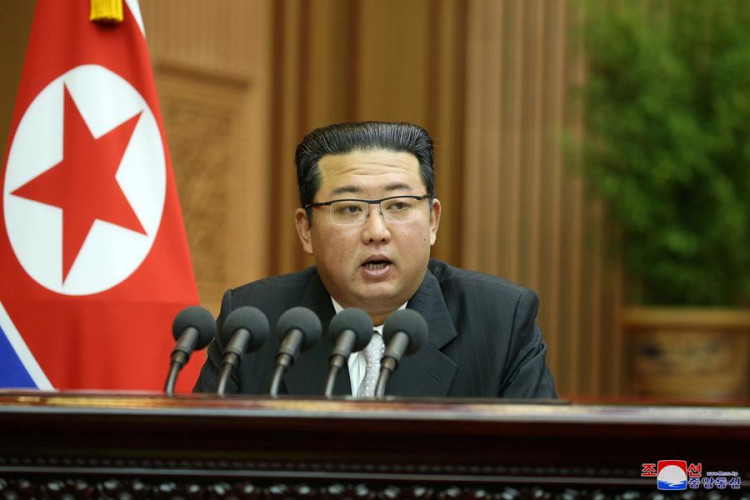North Korea is poised to formalize its increasingly hostile stance towards South Korea in a key meeting next week, signaling a potential turning point in inter-Korean relations. According to analysts in Seoul, North Korea's Supreme People's Assembly (SPA) is expected to revise the country's constitution to codify the regime's adversarial posture toward its southern neighbor. The meeting, scheduled for Monday, is anticipated to solidify North Korea's shift away from any possibility of reconciliation with South Korea, a move that could have significant geopolitical implications.
Tensions on the Korean Peninsula have been rising for months, but the shift in North Korea's tone became evident last year when Kim Jong Un described the relationship with South Korea as that of "two hostile states" during a high-level meeting of the ruling Workers' Party. This statement marked a clear departure from the decades-long agreement between the two nations, which had historically worked towards eventual unification, as outlined in their Basic Agreement of 1991. However, the current direction suggests North Korea is intent on renouncing the terms of this agreement and redefining its relationship with Seoul.
The South Korean Ministry of Unification, which oversees inter-Korean relations, has expressed concern that North Korea will likely eliminate any reference to peaceful unification from its constitution. This amendment could also include the formal declaration of a new maritime border in the Yellow Sea, long a source of dispute between the two countries. North Korea has consistently protested the current Northern Limit Line, a de facto sea boundary set by the U.S.-led United Nations Command in 1953, arguing for a boundary further south. A move to formalize this claim could escalate tensions in the already volatile waters between the two nations.
This potential constitutional revision comes amid heightened military posturing from both sides. Just this week, South Korea showcased its advanced military capabilities, including a bunker-busting missile, in a display aimed squarely at deterring North Korea. President Yoon Suk Yeol reinforced his administration's stance that any use of nuclear weapons by Pyongyang would result in the collapse of Kim Jong Un's regime. In response, North Korea reiterated its refusal to give up its nuclear arsenal and signaled that it has no interest in engaging in nonproliferation talks with the United States, regardless of the outcome of the upcoming U.S. presidential election.
The latest developments reflect a broader strategic shift on the peninsula, with both Pyongyang and Seoul adopting hard-line stances. This new dynamic has also been reflected in public opinion in South Korea. A recent poll conducted by Seoul National University's Institute for Peace and Unification Studies found that 35% of South Koreans now believe that unification with the North is "not necessary," a record high since the survey began in 2007. This sentiment is particularly prevalent among South Korean youth, many of whom view unification as an increasingly distant and undesirable goal. In contrast, only 36.9% of respondents supported the idea of inter-Korean integration, the lowest figure on record.
Analysts believe North Korea's upcoming constitutional revision is part of a broader effort to bolster Kim Jong Un's regime domestically while signaling to the international community that it has no intention of backing down. "North Korea's silence on South Korea in recent weeks is telling," noted a senior official from the Ministry of Unification. "It suggests that they are no longer interested in engaging with Seoul and are sending a clear message to their own citizens that they consider the South an enemy state."
In the lead-up to the SPA meeting, North Korea has escalated its provocations, including the deployment of trash-filled balloons across the Demilitarized Zone (DMZ) and increased anti-South propaganda broadcasts. These actions harken back to the psychological warfare tactics of the Cold War and are a stark reminder of the deepening divide between the two nations.
The potential for further military provocations also looms large. By formally rejecting the 1991 agreement and declaring a new maritime boundary, North Korea could provoke a confrontation in the disputed waters of the West Sea. Such a move would likely draw a strong response from South Korea and its ally, the United States, which remains committed to defending South Korea under its nuclear umbrella.






